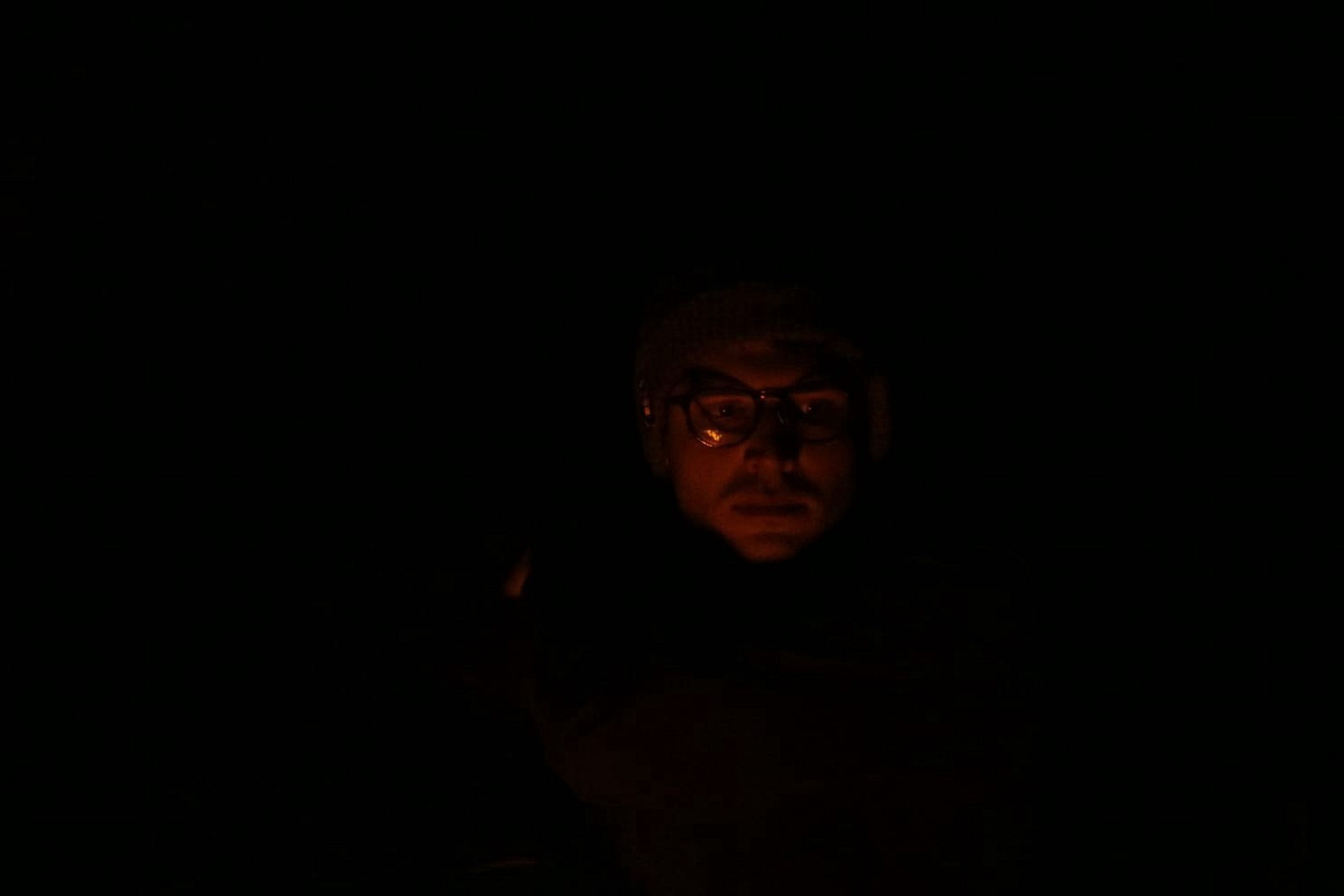Our solution to photography’s new existential crisis
Transforming cameras with artificial intelligence
Written by Dr Liam Donovan, CTO of Photogram

Camping by the sea
A few weeks ago I went wild camping in some dunes just behind a beach at a remote spot in North Devon with a few friends.
As a Londoner, I was in unfamiliar territory, but arriving at the dusty car park a mile from the sea I knew I was in for a treat of a weekend. After an arduous hike over rough terrain with lots of camping gear, I arrived just in time to pitch my tent with the others before sunset.
It was cloudy, much colder than I was expecting and it felt like there was rain in the air, but the others had got a little fire going and we cooked some food, drank some beer and sang a few songs as the night drew in.
Huddled around the fire wearing as many layers as we had brought, the firelight was lighting up our faces and the floor around it, and with the empty blackness of the dunes behind us, I thought this would make a really good photograph that would capture the whole experience really well.

Campsite in North Devon taken with a smartphone
Then we took a photo with our DSLR
One of the people in our group was a former semi-professional photographer with a DSLR and had plenty of experience of tricky shots in low light having once been a nightclub photographer, so they agreed to try and take the shot.
To begin with, the auto exposure wasn’t working well and the white balance was way off.
They switched to shutter priority and tried to get the exposure time fast enough to freeze the flames without too much blur but the light was too low and the faces were all but lost in the darkness.
Cranking the ISO caused the image to get visibly noisy, and getting a shot of the fire and us around it was out of the question as the fire would have been completely washed out long before the faces and surroundings became visible.
After much fiddling with the antiquated menu system, we had a handful of passable shots which would need to be edited to manage for the low light, but the shot we had both envisioned excitedly beforehand had not materialised in reality, and we both felt a bit disappointed.

Unedited photos taken with a DSLR camera
Then I pulled out my smartphone
Then I pulled out my smartphone and took a casual snap, without having particularly high expectations.
To my surprise the shot came out exactly as we had envisioned, with the faces and floor visible, the flames frozen and not blown out, and the yawning blackness behind.
It wasn’t perfect, the resolution was low and there some minor blurring from camera shake, but the difference with the DSLR was startling.
In the blink of an eye, I could use my phone to produce a better image than an experienced photographer with a professional camera.

Campfire scene taken with a smartphone
A major existential crisis in photography
It seems to me that the photographic art form is in the midst of a major existential crisis, similar in scale to the one that occurred when digital replaced film, with computational photography and artificial intelligence grinding traditional photographic norms into dust.
Since the first digital revolution, it has been assumed by camera makers and photographers alike that the best way to make cameras better is with faster glass, bigger and better sensors, more money, more weight and more complex mechanical solutions.
But computational photography has turned that on its head.
The most important aspects of a camera are now its computational power, the algorithms running on its processors, and the size and quality of the datasets used to train those algorithms.
A smartphone can now control its low-quality optical systems and process the raw output to produce photos with much better quality than it should be capable of producing.
The major camera companies are at risk of repeating the famous mistakes of Kodak by not reacting fast enough to the rise of this new technology.
Applying artificial intelligence in cameras
Professional camera lenses and sensors will always provide far superior raw images than those that can be squashed into a smartphone.
Applying computational and artificial intelligence techniques in these systems would increase their quality and usability, unlock new creative possibilities and drive the photographic art form forward.
But rather than rise to this challenge, the big camera manufacturers seem to have surrendered their position on the cutting edge of photographic innovation and retreated to a comfortable world in which the DSLR is hailed as the pinnacle of camera technology.
Photogram AI
At Photogram, we don’t want to see professional optical systems and standalone cameras fade into irrelevance, nor do we want to see the photographic art form devalued and reduced entirely to the casual snap-share-forget paradigm promoted by some social media companies.
We want to see the incredible new capabilities of computation and AI harnessed to give photographers new tools and creative options rather than being used to compensate for low-quality optics and automate the art of the photographic process away.
We want to see the boundaries of photography being pushed in directions that enhance creativity and deepen the artistic potential of the medium rather than devaluing, homogenising and commoditising it.
Our vision
To do this we are reimagining the camera as a computer designed from the ground up for modern photography, with professional optical systems working in combination with powerful processors, cutting-edge AI-accelerated hardware and modernised user interfaces.
We’re even planning to open up the software that powers the camera, giving users access to the code that runs when they press the shutter button and allowing them to deeply modify and customise their cameras.
We believe that the development of the camera should be driven its users and so we will also be putting a lot of effort into building an active community around the device and encouraging engagement and contribution.
Just as when digital surpassed film, computational photography will surpass current digital techniques.
The only way to move forward is to embrace it.
About us. Photogram is a computational photography startup based in London. We’re building the an AI-accelerated computational camera for content creators. You can pre-register here. Dr Liam Donovan is the CTO and Vishal Kumar is the CEO. We were founded on the Entrepreneur First London 12 Cohort in May 2019.



